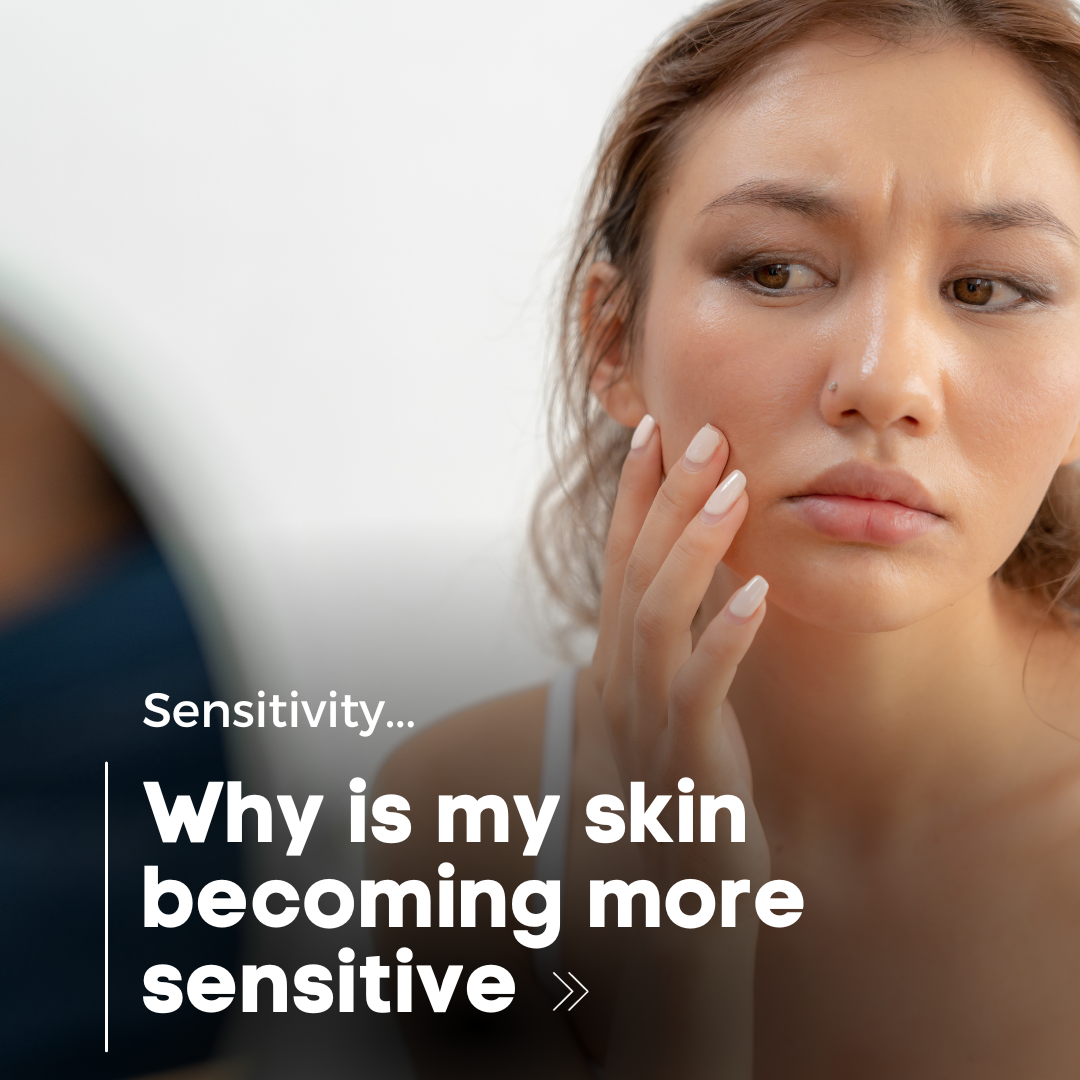News

Why is my skin becoming sensitive?
Here are some common reasons why:
- Are you overloading your skin? Using too many skincare products at once can overwhelm the skin. The skin has a natural barrier and excessive products may disrupt their barrier, leading to sensitivity and irritation.
- Ingredient Conflicts? Some skincare ingredients can react negatively with each other when used in combination or, equal each other out thus making them non-effective.
- Allergic Reactions? You may be sensitive or allergic to one or more ingredients in the product you are using. Common allergens include fragrances, preservatives and certain botanical extracts.
- Harsh ingredients? Some skincare products contain harsh ingredients such as strong exfoliants or high concentrations of active ingredients. Using these excessively can lead to sensitivity.
- Frequent exfoliation? Exfoliating too often can strip away the skins protective barrier. It is important to use exfoliating products in moderation as overuse can cause sensitivity and even lead to conditions like dermatitis.
- Inadequate Moisturisation? If you’re using many drying or exfoliating products without balancing then with proper moisturisation, your skin may become dry, dehydrated and sensitive.
- Wrong products for your skin type? Using products not suitable for your skin type can lead to irritation. For instance, products designed for oily skin may be too harsh for sensitive or dry skin.
- Changes in the skins pH? The skin has a natural pH balance. Using products that disrupt the balance can cause sensitivity. This is why its essential to use products that are pH-balanced or appropriate for your skins natural pH.
- Environmental Factors? External factors like sun exposure, extreme temperatures and pollution can make the skin more sensitive. Using too many products in combination with these environmental stressors can exacerbate sensitivity.
To address Skin sensitivity, consider the following steps:
- Simplify your skincare routine. Reduce the number of products you use and focus on the essentials (Cleanser, moisturiser and sunscreen). Gradually reintroduce other products as needed.
- Patch Test. If trying a new product, always patch-test on a small are of the skin to check for any adverse reactions.
- Read Product Labels. Look for product labels that are suitable for sensitive skin or free of common allergens. Avoid products with harsh ingredients.
- Sun protection. Always use sunscreen to protect your skin from UV damage which can exacerbate sensitivity.
Seek out a professional who works with Skin concerns and ask for a consultation. Our professional Therapists see many different skin conditions and concerns. A lot of the time we see “sensitised” skin that has become sensitive. This generally isn’t your “true skin type” and most likely we can help educate you on changes or lead you in the right direction to help you with improving your skin’s barrier function.
Remember that everyone’s skin is different. What works for one person may not work for another. Finding the right balance of products and routine for your skin type and concerns are essential for maintaining healthy, non-sensitive skin.
Latest Post
- 10 Tips for Healthy Skin
- Healthy Skin
- Receive $50 off your next Facial - Referral Program
- What is the best cream for wrinkles?
- Skin Improvement Program for 2024
- Does it really matter what Cleanser I use?
- Why does my skin feel dry in the morning but oily by the afternoon?
- Why is my skin becoming sensitive?
- Introducing Rossana - Salon Manager at Confidently Skin
- Introducing Julie - Saturday Salon Coordinator


